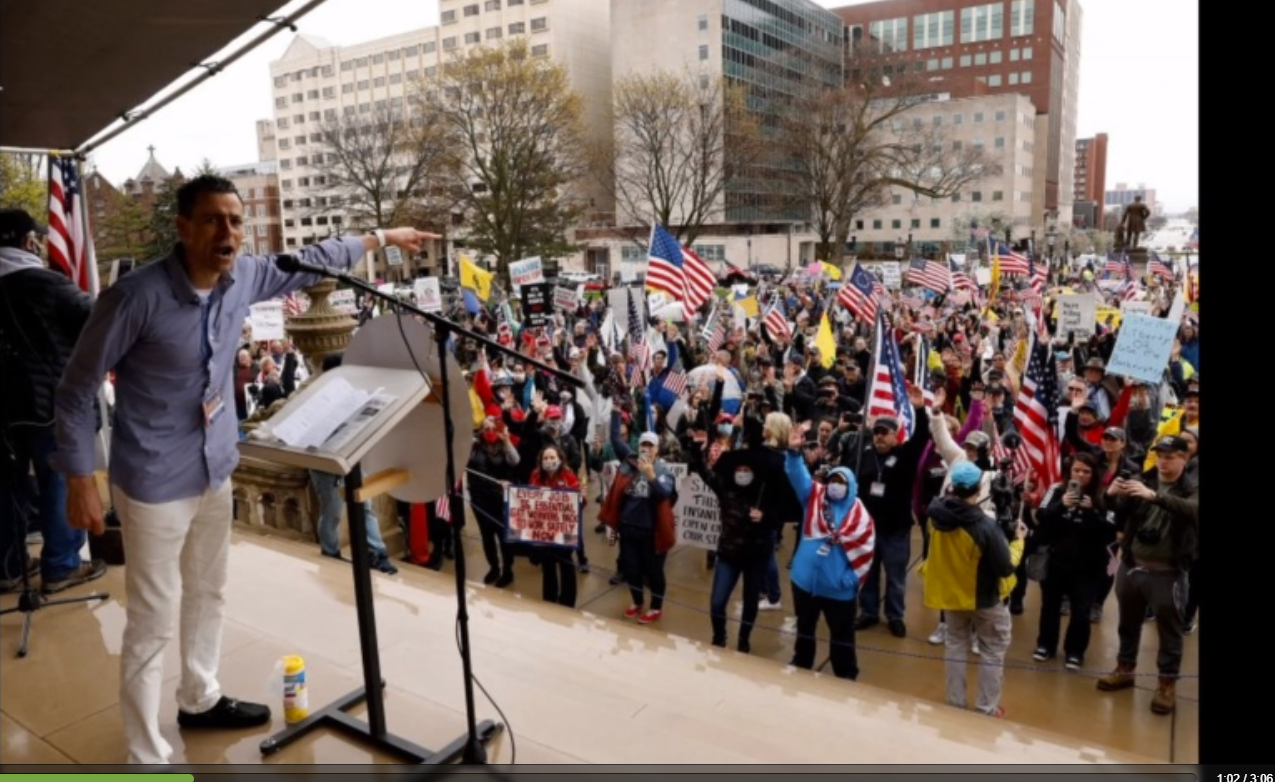When Scalia sided with the liberals, and why he was right
With the death of Supreme Court Justice Antonin Scalia, conservatives everywhere are praising his legacy as a believer and a stalwart conservative justice, perhaps unparalleled in our time. Less publicized, however, are those times that his dedication to strict constitutional principle led him to side with libertarian ideas against the conservatives on the court. This happened more than once in regard to criminal defense. When it did, Scalia actually, if not consciously, upheld biblical principles, ended up siding with the liberal justices in this area, and was usually opposite the conservatives.
Make the accusers appear
One of the outstanding cases in this regard was Bullcoming v. New Mexico (2010). Bullcoming was convicted of aggravated DWI based on a blood sample extracted by police. The analyst who tested and certified the sample results was on leave during trial, and the prosecution called another analyst to testify who had not witnessed the testing but was certified as an expert. Defense objected based on the Sixth Amendment to the Constitution:
In all criminal prosecutions, the accused shall enjoy the right . . . to be confronted with the witnesses against him. . . .
The trial court overruled the objection, but on appeal the case ended up at the Supreme Court. On an oddly divided court, Kennedy, Roberts, Breyer, and Alito (mostly conservatives) argued by watering down the Constitutional requirement. They said that having the actual analyst witness present was not necessary “to ensure a fair trial with reliable evidence,” the judge’s determination of the document’s reliability was enough, and that demanding the actual witness appear in such a case was a “serious misstep.”
The leading liberals of the court disagreed. The majority opinion was written by perhaps the most liberal member, Ginsburg. They argued that if at all possible the witness must be present whether or not the judge determines the document reliable: “the analysts who write reports that the prosecution introduces must be made available for confrontation even if they possess ‘the scientific acumen of Mme. Curie and the veracity of Mother Teresa.’”
Even more important is the actual text of the Constitution (gasp!):
More fundamentally, as this Court stressed in Crawford, “[t]he text of the Sixth Amendment does not suggest any open-ended exceptions from the confrontation requirement to be developed by the courts.” . . . Nor is it “the role of courts to extrapolate from the words of the [Confrontation Clause] to the values behind it, and then to enforce its guarantees only to the extent they serve (in the courts’ views) those underlying values.”
Against the State and the prosecutors’ lobbies supporting its case, the majority asserted in conclusion:
The constitutional requirement, we reiterate, “may not [be] disregard[ed] . . . at our convenience,” . . . and the predictions of dire consequences, we again observe, are dubious. . . .
It was this strict reading and application of the text of the Constitution that drew Scalia’s hearty concurrence. In fact, he was the strictest on the court in this opinion. Even though Ginsburg wrote the opinion, she herself didn’t even join all parts of it. Scalia was the only justice to join the written opinion “in full.”
What did this mean? It meant that Scalia, in this case, sided with the liberals because they were asserting that the text of the Constitution means exactly what it says, nothing more, nothing less, and not some diluted or abstracted version of it. The accused has the right to confront the accusing witnesses, and if the witnesses don’t show up in court, the judge cannot say “well their expert certification on this document is good enough, proceed with the prosecution.”
And Scalia was right to do so. The constitutional right to confront your accusers is based upon the biblical law demand that the accusers themselves be diligently cross examined and that they be the ones to execute the sentence for the charges they themselves have helped establish (Deut. 17:6–7; 19:15–21). The justices who desire to leave such decisions up to judges and paper trails, to allow prosecutors to run with it, and to allow witnesses to abdicate these responsibilities are not only chipping away at Christian ethics, they are helping erode Christian culture every bit as much as those backing abortion, gay marriage, etc.
More than one occasion
A Slate article gives props to Scalia for his stand for strict constitutional rights in criminal defense on more than one score. It quotes Scalia himself saying, “I ought to be the darling of the criminal defense bar. . . . I have defended criminal defendants’ rights—because they’re there in the original Constitution—to a greater degree than most judges have.”
This included multiple cases on the Fourth Amendment. Scanning houses with thermal imaging devices, he argued, violated the Fourth Amendment right to be secure from unreasonable searches. Likewise, placing a GPS device on a suspected drug dealer’s car violated expectations of privacy. In both cases he wrote the majority opinion.
Scalia remained as strict in dissent. He argued against expanding traffic cops’ powers to stop and search based on anonymous claims, condemning Thomas’s opinion in Navarette v. California as a “freedom-destroying cocktail.”
In Maryland v. King, the court reviewed a case in which a man was subjected to a DNA swab after arrest for assault. The DNA test allegedly matched an outstanding rape case, and the man was subsequently convicted for rape. He moved to suppress the evidence citing the Fourth Amendment. Because the man was already in police custody for a “serious crime” (though not yet proven guilty), the Court ruled that the DNA swab was “reasonable” even though it was indeed a “search” under the Fourth Amendment. The court went so far as to say that your Fourth Amendment right, even when you are not proven guilty of a crime, can be “greatly diminished” for “the promotion of legitimate governmental interests.”
Scalia saw the obvious: such a precedent could lead to all kinds of state intrusions based upon alleged “interests.” He blasted:
Today’s judgment will, to be sure, have the beneficial effect of solving more crimes; then again, so would the taking of DNA samples from anyone who flies on an airplane … , applies for a driver’s license, or attends a public school. Perhaps the construction of such a genetic panopticon is wise. But I doubt that the proud men who wrote the charter of our liberties would have been so eager to open their mouths for royal inspection.”
The intersection of justice and interests
Slate argues that Scalia’s defense in these regards was “accidental.” He didn’t truly care for defendants so much as a strict interpretation of the Constitution:
If Scalia was a champion of those rights, he was an accidental champion, a jurist with a deeper objective—namely, fidelity to what he dubbed the “original meaning” reflected in the text of the Constitution—that happened to intersect with the interests of the accused at some points in the constellation of criminal law and procedure. Scalia is more easily remembered not as a champion of the little guy, the voiceless, and the downtrodden, but rather, as Texas Gov. Greg Abbott said, an “unwavering defender of the written Constitution.”
Well, even if this is true it is a very skewed opinion. The whole point of due process is not to favor the big man or the little man, but to let strict justice have its course. If we can agree that the rights recognized by our Constitution are, in any given instance, just, then we ought not have any greater care for the defendant or the prosecutor, the judge, jury, state, citizen, class, or individual. When just, due process prevails, whether or not it “happens to intersect” with the “interests of the accused,” it is right. It is not his “interests” that the law exists to protect, but his/her rights.
These liberals may not be able to put 2-and-2 together here, but conservatives are often worse: as some of the cases above illustrate, they don’t even arrive at the equation. In their lust to be “tough on crime,” they often ignore or invent ways around the Constitution in order to win prosecutions at all cost. Judges routinely pervert due process in order to give advantage to prosecutors. As such, conservatives often empower the interests of the state in destruction of the rights of the people.
Conclusion
While I cannot speak for Scalia’s record over all, and do not even agree with all of his views in regard to criminal justice, he is right in these cases, mainly because he upheld the Constitution, and on these points the Constitution happens to be biblical. It is sad that we find him having to side more often than not with the liberal justices in order to express such biblical views, and even sadder that they are so often vigorously opposed by conservatives. Anyone who understands how the Bill of Rights has been consistently eroded in the name of a war on drugs and a war on terror will find great appreciation in the irony that the most conservative, strictest constitutionalist on the court so often saw the merits in the liberals’ view of civil rights.
http://americanvision.org/13027/when-scalia-sided-with-the-liberals-and-why-he-was-right/








